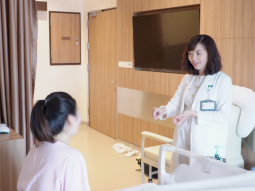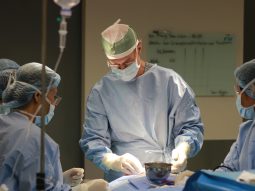According to clinical guidelines, there should be no surgical indication for a stroke patient with a Glasgow score of 3. However, guided by his intuition and extensive experience, Dr Nguyen Manh Hung, Head of the Neurosurgery and Spine Surgery – Endovascular Neurosurgery (FV Hospital), decided to perform the surgery that saved the patient on the brink of death.
The urgency and unanimous determination from the patient’s family further motivated the doctors to save the patient, even though the success rate for such cases, according to medical literature, is very low.
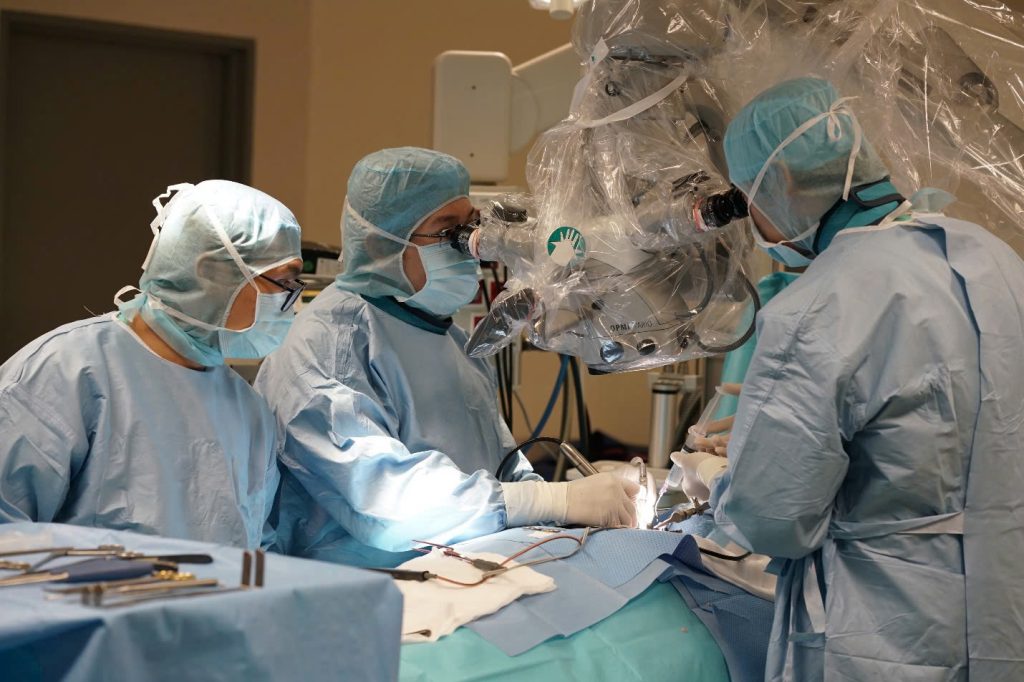
Saving a critically ill patient through a courageous surgical procedure.
Patient Duong Ngọc Dung (68 years old, residing in Ho Chi Minh City) suddenly collapsed while lecturing and fell into a deep coma. He was rushed to FV Hospital by his students for emergency treatment.
On that day, as Dr Nguyen Manh Hung, Head of the Neurosurgery and Spine Surgery – Endovascular Neurosurgery Department at FV Hospital, was preparing for a scheduled surgery, when he unexpectedly received an alert from the emergency department about this case. The CT scan of the brain showed a very serious condition: intraventricular haemorrhage, cerebellar haemorrhage, dilated ventricles, and no visible brainstem. The Glasgow score (a scale measuring consciousness in patients with acute brain injury) was at 3, indicating that the patient was completely unconscious.
“According to medical guidelines, this was a case with no indication for surgery. The emergency and intensive care doctors also predicted that there was nothing more that could be done,” Dr Hung recalled. “At that moment, I received a phone call with a very earnest voice: ‘Is this Dr Hung? My family member is in the emergency room; please come and take a look!’ I was a bit puzzled: how did the patient’s family get my phone number? And then a thought crossed my mind: maybe there was something I could do for this patient. So I decided to postpone the scheduled surgery and dashed down to the emergency room.”
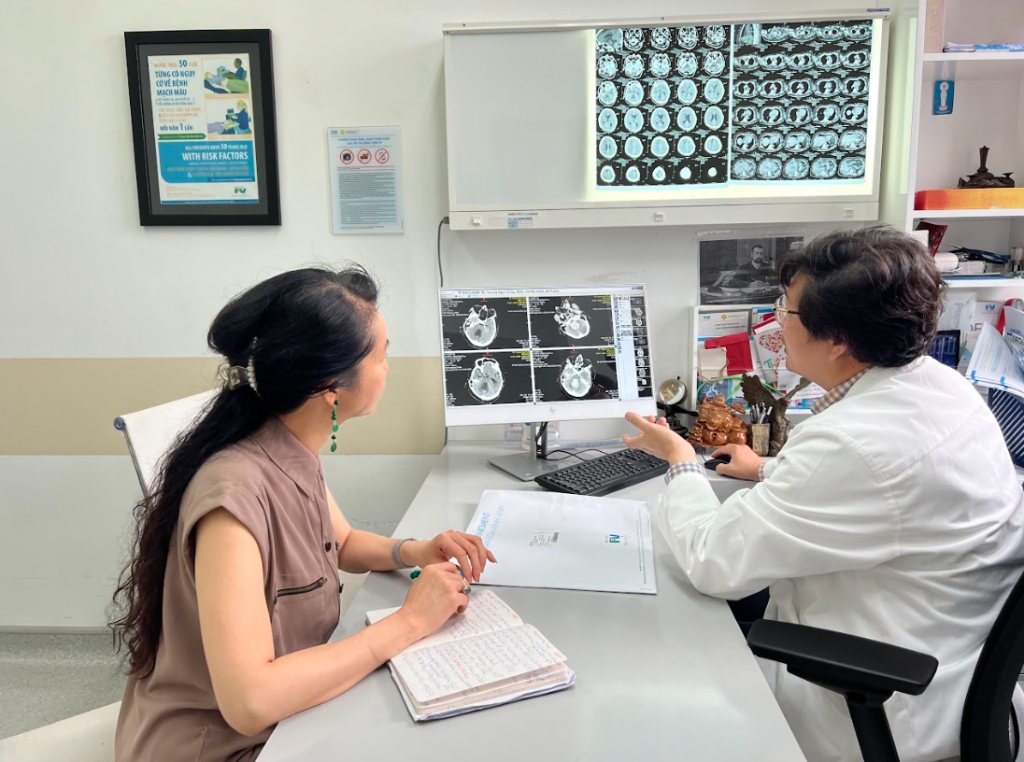
Directly examining patient Dung, Dr Hung noticed that the patient had indeed lost all reflexes; his pupils were constricted, and nearly all vital functions seemed to have ceased. However, deep down, Dr Hung felt an intuition that something could still be done for the patient, he recalled “Even if there’s only a 1-2% chance, I have to try.”
Dr Hung presented two treatment options to the family; conservative medical management or surgery, allowing them to choose. “When the doctor made the suggestion and left the decision up to us, I understood that he implied if we chose surgery, my husband would have a chance, albeit a slim one… At that moment, whether it was intuition or a gut feeling, looking into Dr Hung’s eyes, I placed my complete trust in him,” Mrs Thuy Hanh, the patient’s wife said, as she reflected on her decision to sign the consent forms for her husband’s surgery.
To relieve the intracranial pressure and evacuate the haematoma, allowing blood to circulate to the brain and nourish the cells, Dr Hung drilled a small hole in the patient’s skull to insert a drainage tube. The intervention lasted a mere five minutes but dramatically altered the situation; the subsequent CT images showed significant improvement in the patient’s condition, thus opening the door to further treatment possibilities.
Dr Nguyen Thi Lam Giang – Anaesthesiology & ICU Department at FV Hospital also expressed her concerns about performing surgery on a patient in such a deep coma. Dr Giang commented after the surgery, “The biggest fear at that moment was that the patient might die on the operating table, or that post-surgery, the brain swelling could worsen. Fortunately, after the haematoma was removed, the patient was saved. That was an initial success, although there was still a long road ahead.”
Placing Complete Trust in the Medical Team
For over a month after the surgery, the patient experienced episodes of pneumonia, external drainage leading to meningitis, and required intubation and continuous mechanical ventilation. Once the patient’s condition stabilised, the doctors proceeded with a second surgery to completely remove the haematoma in the ventricular system. “After a period of time, when the brain had been completely cleared, we removed the drainage tube. At this point, the intracranial pressure was nearly normal,” Dr Nguyen Manh Hung stated.
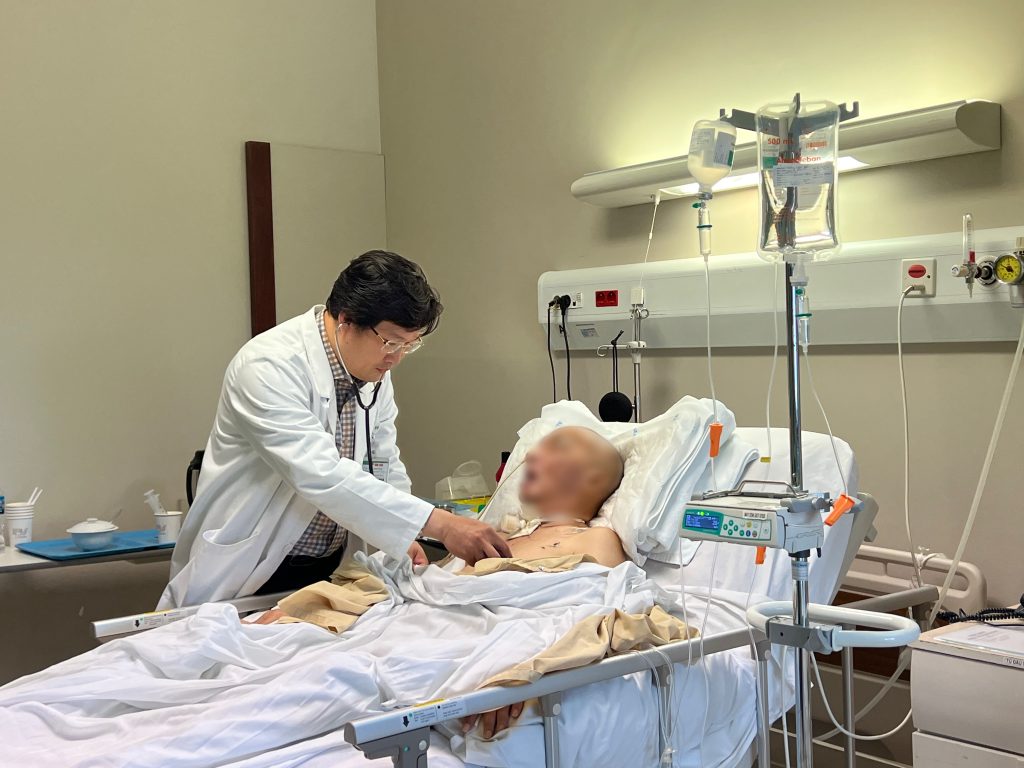
The patient was transferred to the HDU (High Dependency Unit) after surgery. Thanks to the dedicated treatment and care from the medical staff, especially the nurses, Patient Dung gradually overcome his critical condition and began to recover.
Although every time her husband underwent surgery, Mrs Hanh felt extremely anxious, she was also grateful that she could place her complete trust in the medical team. “Today, I silently thank my intuition for leading me to make the right decision.” Mrs Hanh expressed her appreciation, “Dr Hung is not only a talented doctor but also a benefactor I will be grateful for all my life, as he has given my loved one a chance to live until today and he is gradually recovering.”
Striving to Bring a Miracle in a Special Surgery
After undergoing two surgeries, the patient began to regain some function, such as naturally opening his eyes, having pain reflexes, sensing those around him, and following commands like opening his mouth and sticking out his tongue. Mrs Hanh recalls, “When I told a funny story, my husband was half asleep, and I saw him smile faintly. Observing those little things made me very happy!”
According to Dr Hung, the patient still needs to be monitored and treated intensively. “All of our recommendations are based on substantial medical evidence, treatment guidelines, and the team’s experience, but it can be said that this surgery also benefited from the presence of hope. However, after such a severe injury, some complications will be left behind that is a certainty. And even now, I still believe this is a miracle,” Dr Hung stated.
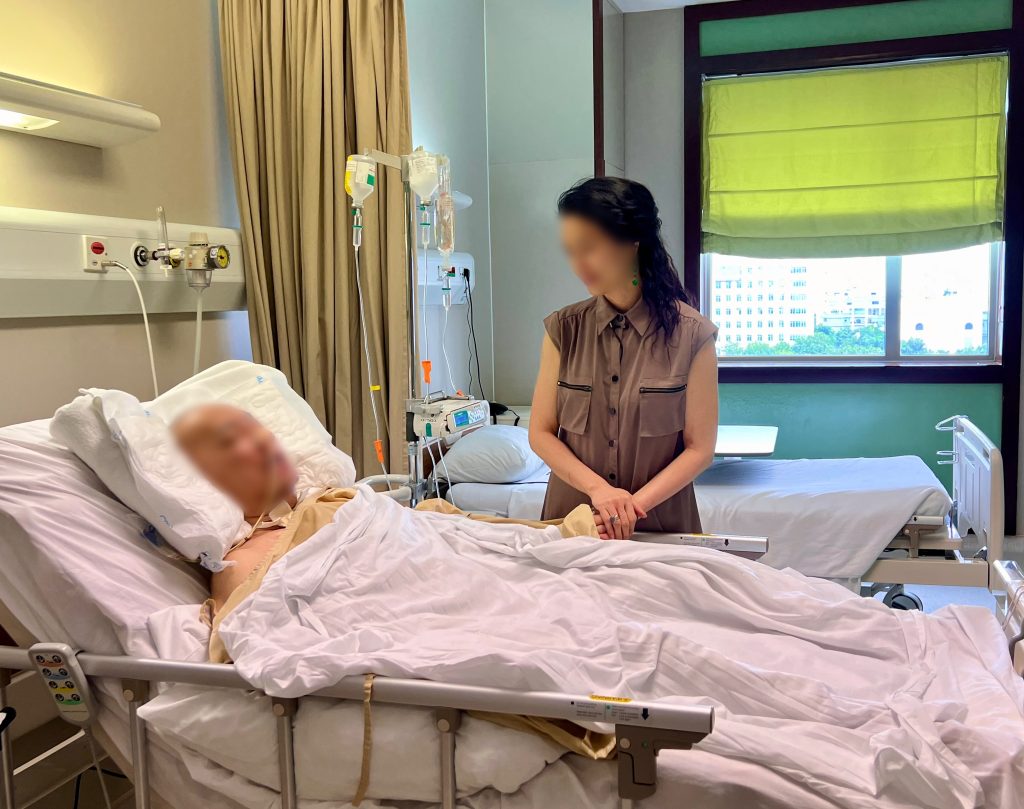
After two months of treatment, on 26th June, Mr Duong Ngoc Dung was discharged from the hospital. FV Hospital continues to accompany the patient through home healthcare services. Mrs Hanh expressed with hope,“I hope that the most wonderful day in the future will be the day when my husband stands in front of everyone and shares his experiences, the efforts he made, the challenges he faced, and what he has achieved.”

 Vi
Vi 

